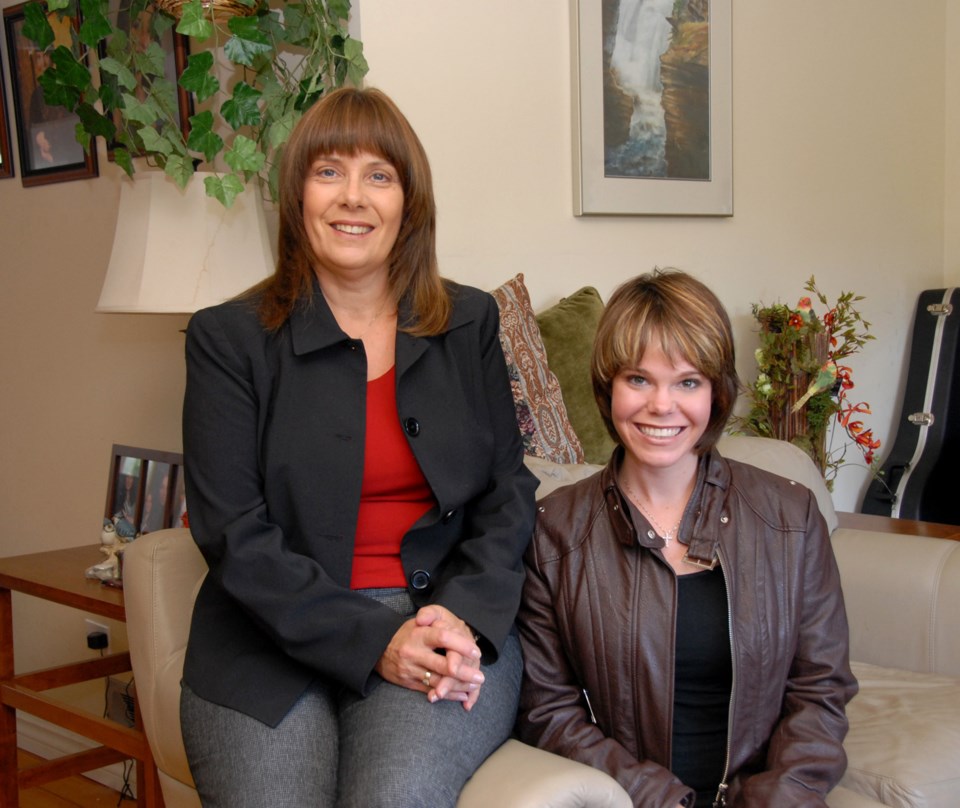It's not usually an option for someone with an eating disorder to call and have a health-care professional show up at their door to help - but a new Burnaby-based private service is aiming to fix that.
Burnaby residents Kathy Martin, a registered nurse, and Heather MacPherson, a youth and family counsellor, joined forces to start a new private business unlike any other, called Life Redefined Eating Disorders Support Services.
"We met about six years ago and found we have similar interests in that she (Martin) is in the eating disorder field and I was in school at the time, and wanted to (study) eating disorders when I finished my degree.
"I just noticed a need in the community with a lot more people that were struggling and noticed that needs were just not being met like they could be."
Martin has worked for 30 years at a local hospital in the specialized eating disorders unit. MacPherson has several years experience working with people with eating disorders and mental health issues.
"I noticed that when clients are in hospital, they do well and often the hospital will help to restore their body weight. But they're often not able to help with restoring the mind, which is what needs to be restored after the body weight and it can take a long time," Martin said.
The local nurse noted a lack of resources means a lack of support for the clients who get their body back to a healthy weight and are sent home.
"We often have a bit of a revolving door and people come back," she said. "For instance, a youth will start coming into the hospital at age 12 or 13, and still be coming to the hospital at age 17. We support them as much as we can within the limits that we have. There's something else needed, there's always something else needed. They don't have what it takes, or their families don't have what it takes."
MacPherson said the hospital environment isn't reality, either, as they're not only time limited, but it's difficult for people to transition when they go home.
"We wanted to meet the needs of the people in their community, in their home, the day to day, because in reality you're not going to be living in a hospital, so we want to try and help people live at home - while getting healthy and working towards recovery," she said.
The service is not limited to people coming out of the hospital, but for "anybody that's struggling" with an eating disorder, MacPherson noted.
A client will have to get a meal plan from a registered dietician, and MacPherson said they have one they'll refer to clients.
"One of our main services will be supporting the person in the meal plan," she said. "So meeting them to do meals, and often after meals are very difficult so we'll engage in what's called post-meal support, which is things like coping mechanism skills, like distraction. Just anything to get them through that difficult period to just having eaten, which is often difficult for a lot of clients. Clients sometimes will purge, so we will be there just to help them choose not to do that."
Martin said they're business's mandate is to help move clients away from their eating disorder and "into life."
"To establish life goals and start to move towards meeting," she said. "What happens when somebody gets an eating disorder, they become so focused on their illnesss that they lose the perspective they need to develop their talents and hobbies and to move towards being part of their community in work and whatever they would like to do. They lose it. The eating disorder basically steals everything they have. We want our service to be quite varied. So, if someone needed help applying for a job or putting in a resume, or anything like that, volunteering, just to help them get back to see that there's more to life than their eating disorder because they really don't understand that."
Martin and MacPherson note the challenges their business faces right now include being only a two-member team and the cost of the services - as it's not covered by medical.
However, MacPherson said the duo hope to eventually become a registered non-profit society.
"We want to try and open a non-profit society so people, companies, corporations can donate and receive a tax receipt and ... the money (will) be used to be given as grants for individuals who can't afford it. In reality, those who have a pretty severe eating disorder, they aren't able to work so it's going to be up to family and friends to be able to pay for the service. We foresee that as a problem and we're looking for ways to rectify it by making it a society eventually."
For more information about Life Redefined, visit www.liferedefinedeatingdisorders.com.



